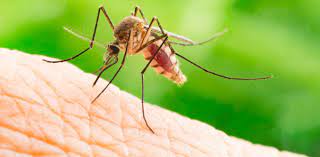Mosquito bites are a common annoyance during warmer months, leaving many people wondering about their characteristics. One frequent question that arises is, "Are mosquito bites hard?" In this informative blog post, we will explore the anatomy of mosquito bites and shed light on why they can sometimes feel hard. Understanding these factors will help us better comprehend mosquito bites and provide insights into managing the discomfort they can cause.
-
The Mosquito Bite Process: To understand the hardness of mosquito bites, it's important to grasp the process of how mosquitoes bite. Female mosquitoes are the ones that feed on blood, as they require it for egg development. When a mosquito lands on our skin, it uses its needle-like mouthparts to pierce through the epidermis.
-
Injecting Saliva: As a mosquito bites, it injects a small amount of saliva into our skin. The saliva contains proteins that serve as anticoagulants, preventing our blood from clotting and enabling easier feeding for the mosquito. This saliva also acts as an irritant to our immune system, triggering a localized reaction.
-
Immune System Response: When the mosquito's saliva enters our skin, our immune system recognizes it as a foreign substance. This prompts the release of histamines and other chemicals, initiating an inflammatory response. The immune system's reaction causes blood vessels in the area to dilate, leading to redness, swelling, and itchiness.
-
Hardness of Mosquito Bites: While mosquito bites are commonly associated with itchiness, they can sometimes feel hard to the touch. This hardness is typically caused by the localized swelling and inflammation resulting from our immune system's response. As the immune system releases histamines and fluids accumulate in the bite area, it can create a firm or raised bump.
-
Duration and Variation: The duration and hardness of mosquito bites can vary from person to person. Some individuals may experience more pronounced swelling and harder bumps, while others might have milder reactions. Factors such as the individual's immune response, sensitivity to mosquito saliva, and previous exposure to mosquito bites can influence the hardness and duration of the bites.
-
Managing Mosquito Bite Discomfort: While mosquito bites can be bothersome, there are steps you can take to alleviate the discomfort:
- Resist the urge to scratch, as it can worsen the itch and potentially lead to infection.
- Apply over-the-counter anti-itch creams or ointments to relieve itching and inflammation.
- Use cold compresses or ice packs to numb the area and reduce swelling.
- Take oral antihistamines to help alleviate itching and reduce the immune system's response.
- Keep the bite area clean and avoid any potential irritants that could further inflame the skin.
Mosquito bites are not inherently hard, but the localized swelling and immune system response can give them a firm or raised appearance. Understanding the process behind mosquito bites and their effects on our skin can help us manage the discomfort more effectively. By practicing proper bite care and employing appropriate remedies, we can minimize the itching and swelling associated with mosquito bites and find relief during mosquito season.










